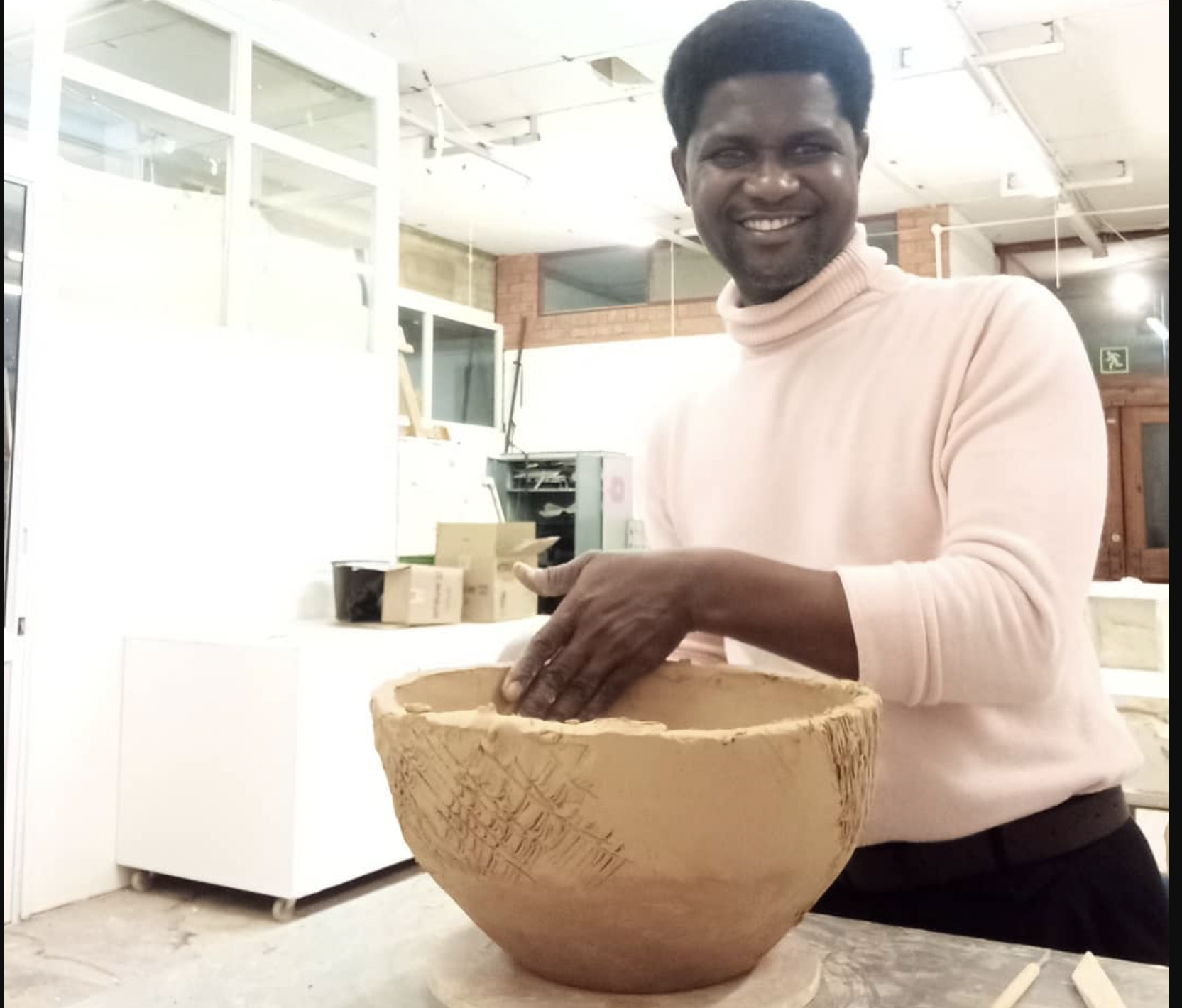By LIKHAPHA THAATHAA
Sùnnùkùn is a Yoruba word that means ‘criticality’. The same word is the title of a solo pottery exhibition held at Rhodes University’s Raw Spot Gallery from 16 to 30 September.
Dr Quadri Oluwasegun Olawale said the 22 works in his pottery exhibition attend to critical issues “with critical attention”. Quadri’s artwork is a metaphoric representation of traditional Yoruba culture and values.
Quadri’s skilful attention to detail demonstrates how studio theory meets practice in his production of conceptual ceramics. The exhibition creates a platform for engagement with semiotics (interpreted signs and symbols).
His artworks exemplify contemporary artistic practices rooted in a globally influenced, culturally diverse, and technologically advanced world. He uses a dynamic combination of materials, methods, concepts, and subjects that continue to challenge boundaries.
Artist, historian and scholar
Quadri is an art historian focusing primarily on decolonising art practices in Africa. He sees visual art as a form of pedagogy.
He studied Fine and Applied Arts at the Federal College of Education (Tech) in Akoka, Lagos. He obtained a Bachelor of Arts, Master’s Degree, and PhD in African Traditional Pottery and Visual Arts from the University of Lagos in Nigeria. Quadri has also presented his work in India and United Kingdom.
He is also a postdoctoral researcher with the DST-NRF South African Research Chairs Initiative (SARChI) in Geopolitics and the Arts of Africa and the Global South in the Fine Art Department at Rhodes University.
Oju Sùnnùkùn: What is the pride in virginity?
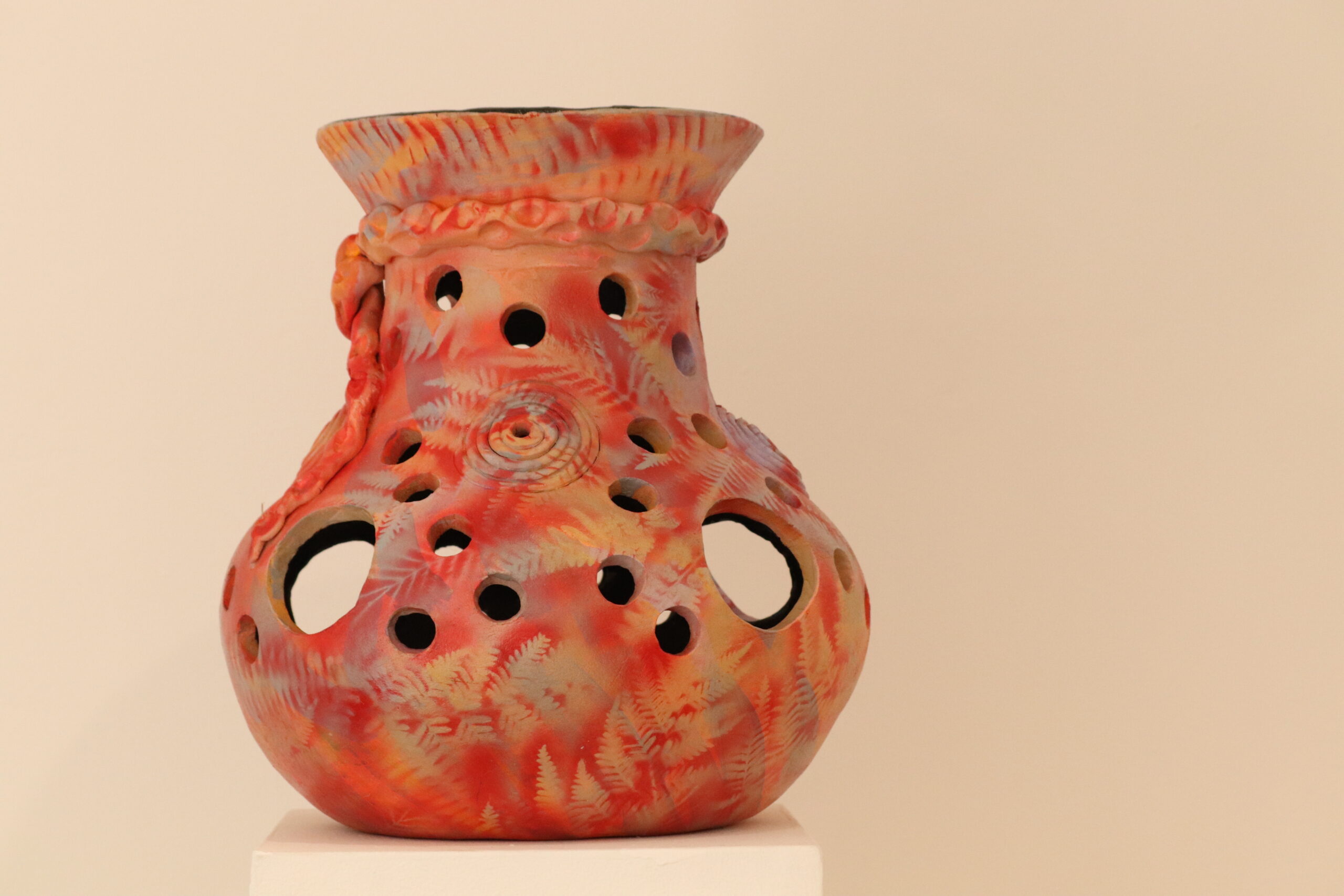
Medium: Clay and Acrylic
Dimension: 33cm x 33cm x 40cm
Year: 2021. Photo: Likhapha Thaathaa
One of Quadri’s art pieces is titled, “What is the pride in virginity?” and gives critical attention to virginity amongst women in Yoruba culture. The pottery is a metaphor for the stainless white cloth that symbolises ‘aroko’, representing the emptiness of a newly-wedded wife who has enjoyed sexual pleasure before marriage.
Virginity is known as ‘ibale’. According to Yoruba culture, ibale is expected to be kept until the wedding night. The message is depicted through several sizes of holes in the pottery as a metaphor for the loss of chastity and respect for women’s dignity.
The artwork questions how women are perceived in the Yoruba culture. “There must be an equilibrium of conversations around this. Why are women being discriminated against in society? How do they test if the man is not a virgin?” he said.
According to Yoruba culture, the wedding night is approached with high expectations with diverse possibilities characterised by happiness, gloom, pride, sorrow, rejection, or celebration.
Patanmo: self control
Another interesting piece is ‘Patanmo’, which means people should be able to control themselves. The newsprint portrays the individualities and narratives that run through their lives. The half closed/opened zip on the art explains that people need full control of their lives. “People need to know when to speak and when not to speak; they need to have limits in everything in life,” he said.
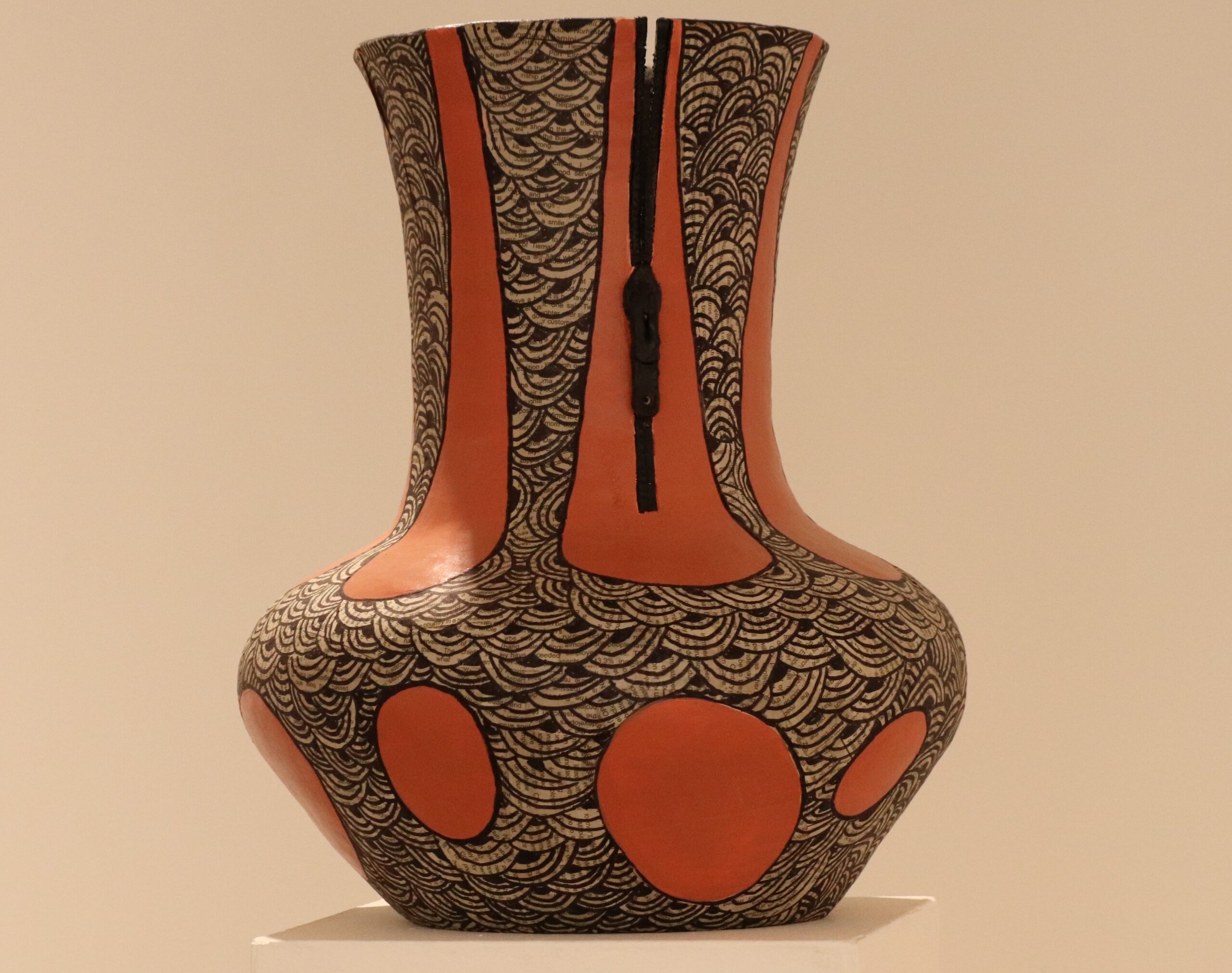
Medium: Clay, Acrylic and News Print
Dimension: 37cm x 37cm x 43cm
Year: 2022. Photo: Likhapha Thaathaa
Ododo: flower
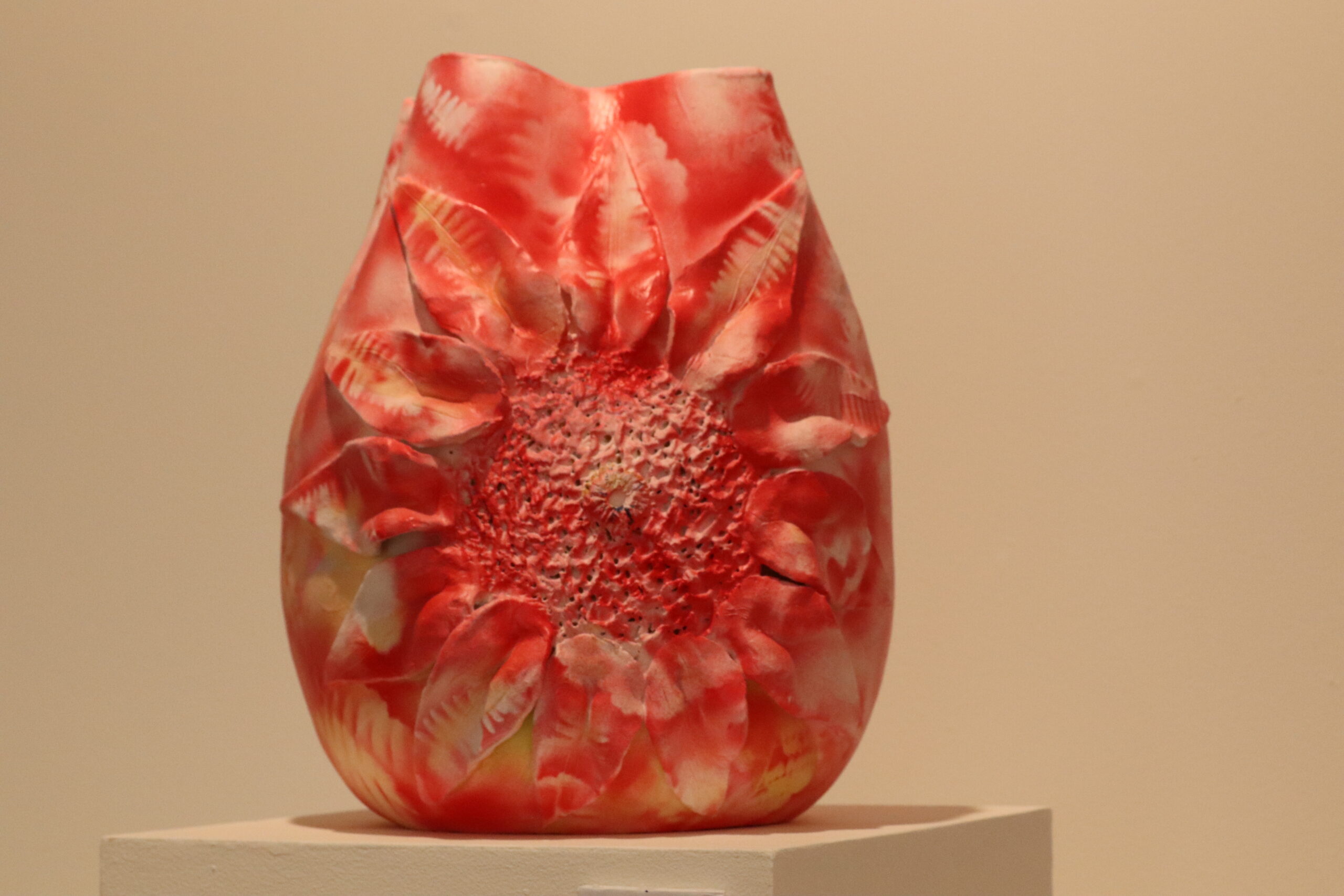
Medium: Clay and Acrylic
Dimension: 18cm x 18cm x 30cm
Year: 2022. Photo: Likhapha Thaathaa
Fila Abeti Aja: Cap like the ears of a dog
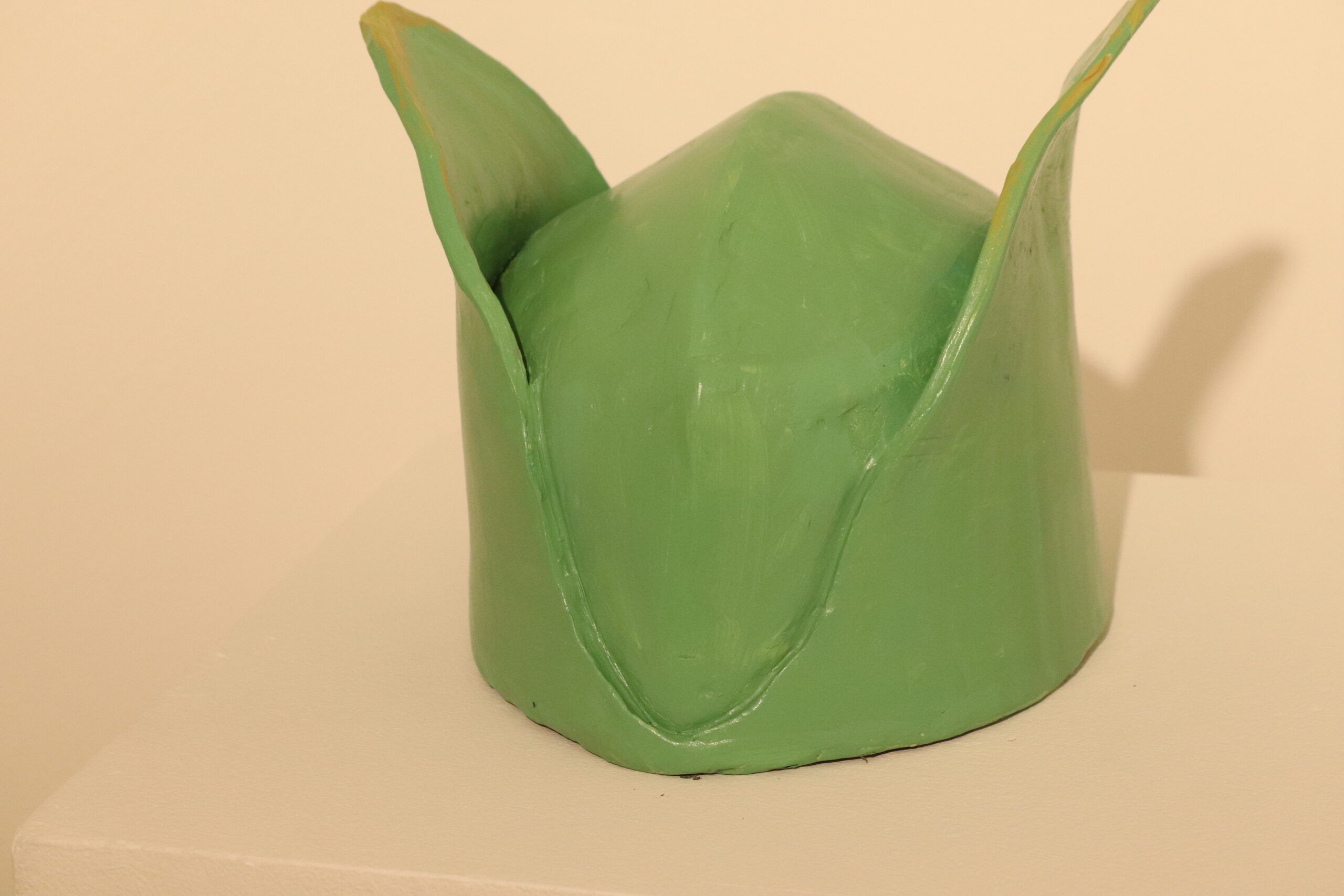
Medium: Clay and acrylic
Dimension: 26cm x 20cm
Year: 2022. Photo: Likhapha Thaathaa


